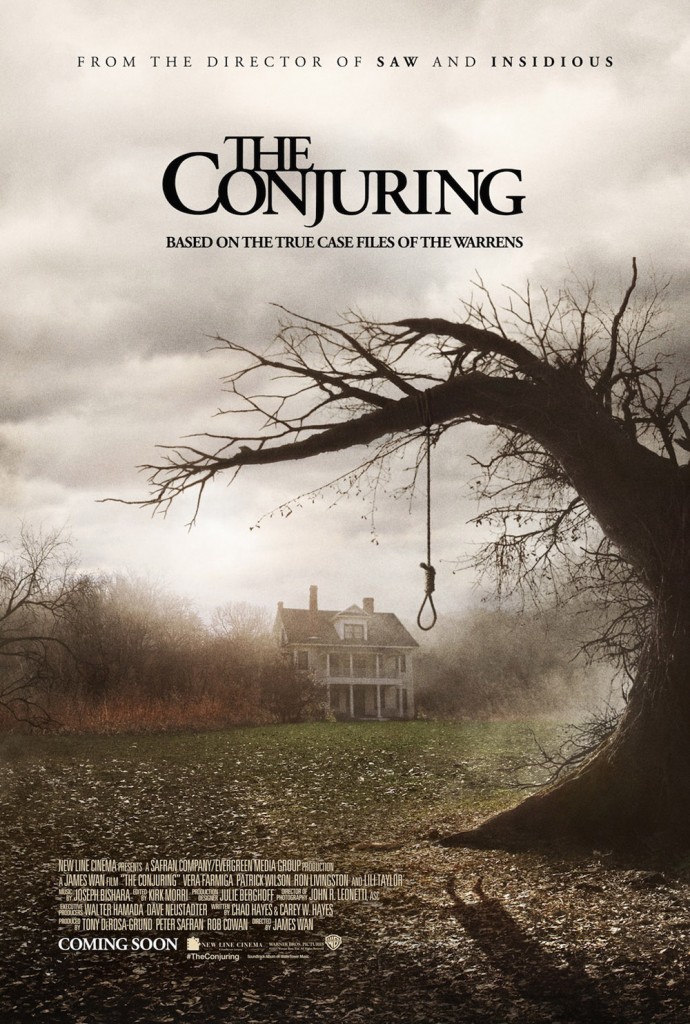 The Conjuring has been the focus of a lot of discussion recently from a variety of perspectives: It surprisingly broke box office records in its debut weekend, beating out much bigger budget movies; Salon.com claimed it was a “right-wing, woman-hating film; two individuals responsible for producing the film stated that they hoped the film, with its metaphysical dualism of God and the devil, would serve an evangelistic function regarding Christianity. But two other areas related to the film have largely been missed outside of narrow discussion circles. One is what to make of the use of “evil witches,” particularly as it relates to the real world Salem Witch Trials as part of America’s problematic religious past. Another is what to make of the present of controversial demonologists and parapsychologists Ed and Lorraine Warren in the film. TheoFantastique hopes to provide commentary on the latter in a future post, but with this guest essay, Heather Greene provides her thoughts on the Witchcraft issues in the film. Greene has a B.A in Film History from Wesleyan University, and an M.A.in Film History and Theory from Emory University. She studied film at both Cornell University and University of Paris. She is also an initiated Wiccan Priestess.
The Conjuring has been the focus of a lot of discussion recently from a variety of perspectives: It surprisingly broke box office records in its debut weekend, beating out much bigger budget movies; Salon.com claimed it was a “right-wing, woman-hating film; two individuals responsible for producing the film stated that they hoped the film, with its metaphysical dualism of God and the devil, would serve an evangelistic function regarding Christianity. But two other areas related to the film have largely been missed outside of narrow discussion circles. One is what to make of the use of “evil witches,” particularly as it relates to the real world Salem Witch Trials as part of America’s problematic religious past. Another is what to make of the present of controversial demonologists and parapsychologists Ed and Lorraine Warren in the film. TheoFantastique hopes to provide commentary on the latter in a future post, but with this guest essay, Heather Greene provides her thoughts on the Witchcraft issues in the film. Greene has a B.A in Film History from Wesleyan University, and an M.A.in Film History and Theory from Emory University. She studied film at both Cornell University and University of Paris. She is also an initiated Wiccan Priestess.
n my current film research and writings, I posit that the character of the Witch within Hollywood film language is derived from fictional constructs with little basis in reality. In other words, the Hollywood witch is not at all a caricature or representative of the modern day Wiccan, Heathen or Pagan practitioner.
The Hollywood Witch’s role in a film’s narrative is based on the cultural acceptance that the witch doesn’t exist. She (or he) lives, so to speak, in the same pre-narrative framework as Frankenstein, Dracula, faeries, elves and even Mickey Mouse. The audience accepts her as a fictional fantasy character.
With that said, the witch does carry with her a load of cultural and historical subtext that originates in European Catholic theology. This theology associates the witch with the Christian Satan. However, in the minds of most modern audiences, these subtexts are relegated to superstition. As such, witches don’t exist.
The horror film genre and its sub genres (slasher, thriller etc) evoke fear by introducing the frightfully fantastic into reality. The more real the setting, the more frightening the film. They are “worst-case scenarios” marinating in the monstrous and the inhuman. Often these films dabble in the esoteric, occult, and other similar practices that have been shunned by mainstream Christian culture for centuries. Fear of the witch is a part of that theologically-based cultural legacy.
From what I understand, The Conjuring is playing directly into that scenario. It uses the legacy of the Salem Witch trials, steeped in Christian superstition, and brings that to life with occult practices. They step it closer to reality by claiming the story is true. This is nothing new.
For modern Pagans who strive to demonstrate that real witches aren’t and have never been fearful figures, Hollywood’s perpetuation of this myth can be troublesome. However, that battle is a monster in and of itself. The stigma on the witch has moved well beyond the realms of theology and is now embedded in secular society.
While we, Pagans, should be mindful of Hollywood’s portrayal of witches, we also should be conservative in any outrage directed toward Hollywood. There are very few cases where any type of real Pagan theology has informed a Hollywood witch character. The Conjuring is a perfect example. The Hollywood witch is not us nor has she (he) ever been. She is a fictional creation. We may have some common roots but we are not one and the same.
I have not seen the The Conjuring nor do I plan to see it anytime in the near future. To be completely frank, I am not a fan of the modern horror film.
Related posts:
“Black Death: Promising Medieval Horror”
“Black Death Podcast: Peg Aloi, Medieval Horror, and Religious Dialogue”
“Karin Beeler: Seers, Witches and Psychics On Screen”
“Carrol L. Fry – Cinema of the Occult: New Age, Satanism, Wicca, and Spiritualism in Film”
“Peg Aloi: Cinema and the Occult Revival”
“Metaphysical Media and a Typology of Media Portraits of the Witch”
“Jason Winslade Interview: Esotericism in Witchcraft and Entertainment”





3 Responses to “Heather Greene Guest Essay: The Conjuring and Horror Depictions of “Evil Witches””